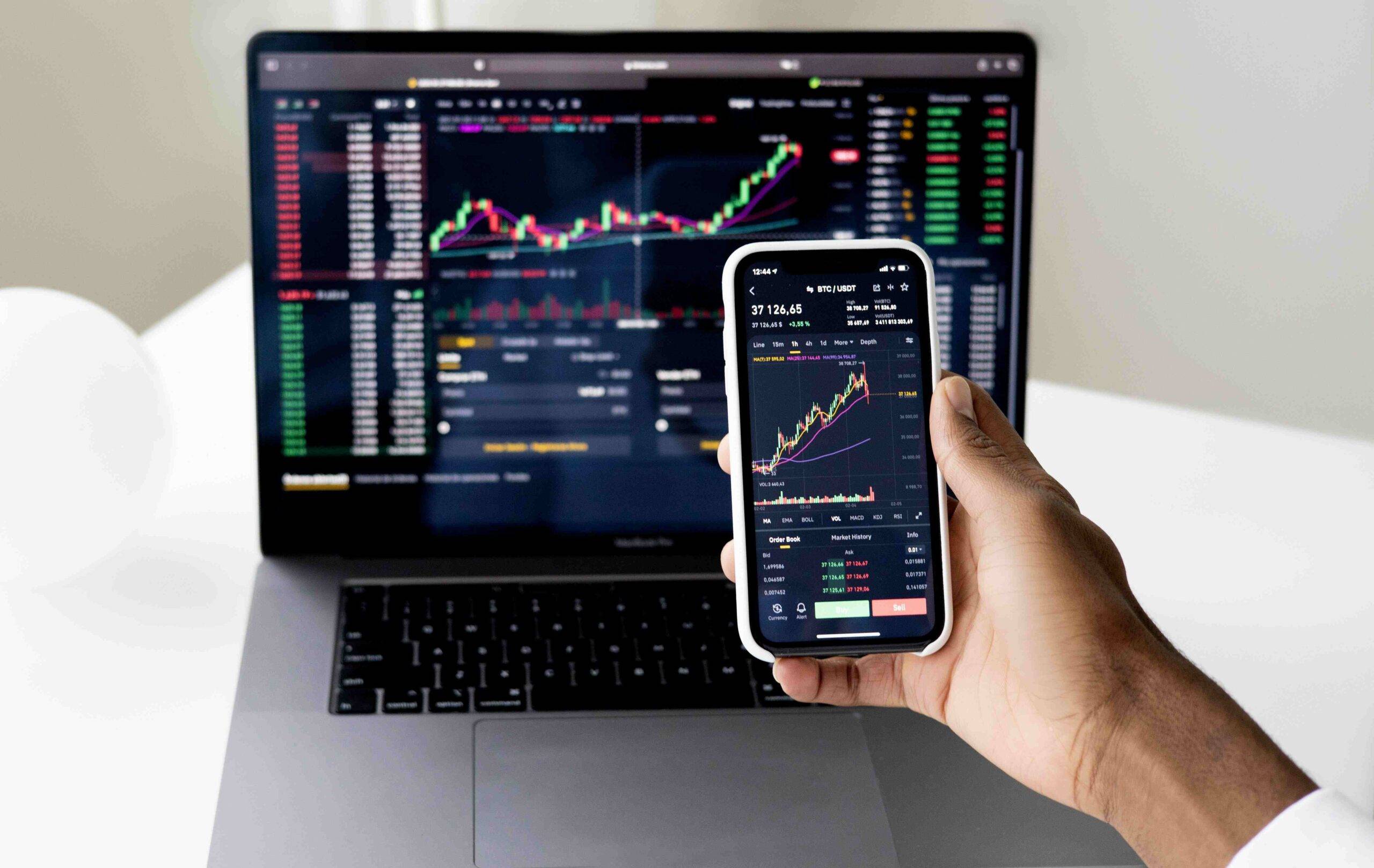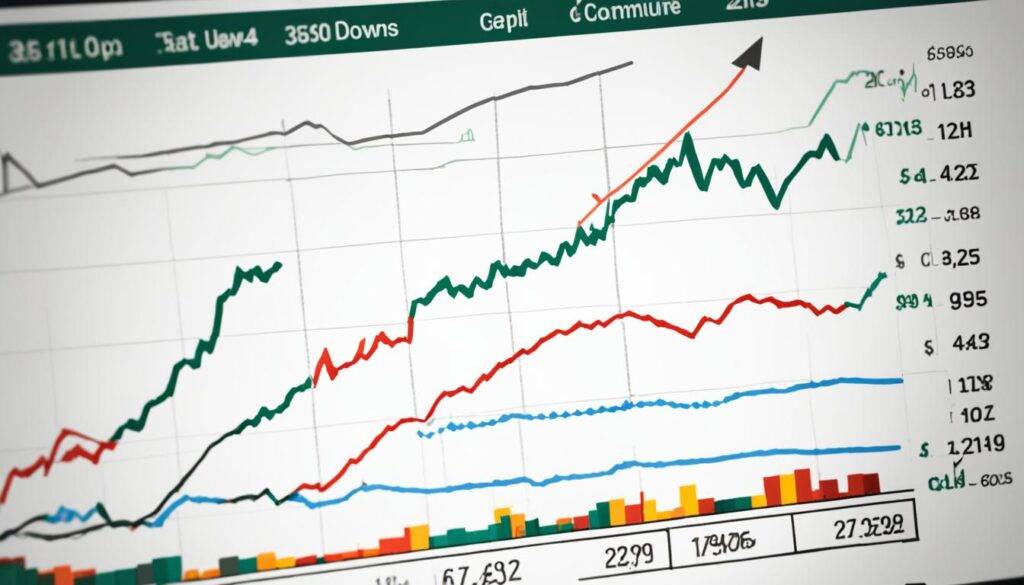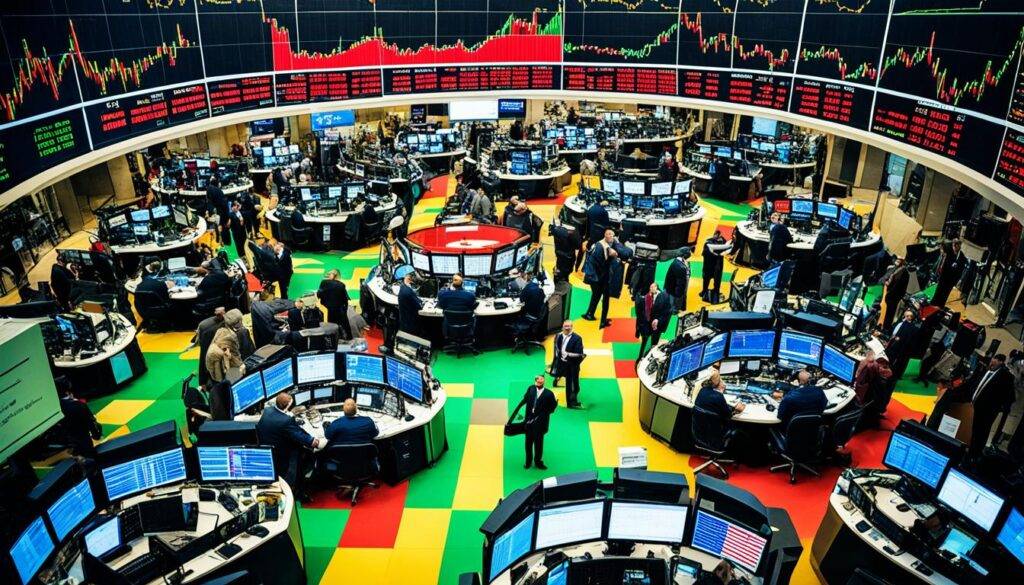Welcome to the exciting world of commodities trading! If you've ever wondered about the dynamics of the commodity market, how commodity prices are determined, or how to analyze trends in this industry, you're in the right place.
Commodities trading refers to the buying and selling of raw materials, such as agricultural products, metals, energy resources, and more. This global marketplace offers immense opportunities for investors and traders, as well as a vital role in the global economy.
Understanding commodity prices is crucial in this field. It involves monitoring supply and demand factors, geopolitical events, weather conditions, and economic indicators. By studying commodity market analysis, you can gain valuable insights to make informed trading decisions.
Futures trading is one of the key components of commodities trading. It involves contracts that specify the delivery of a certain quantity of a particular commodity at a future date. This enables traders to mitigate price risks and speculate on future price movements.
In this article, we will explore the world of commodities trading in-depth, from market analysis and trading strategies to investment insights and online trading. Get ready to expand your knowledge and potential in this exciting field.

Key Takeaways:
- Commodities trading involves the buying and selling of raw materials on a global marketplace.
- Commodity prices are influenced by supply and demand factors, geopolitical events, weather conditions, and economic indicators.
- Futures trading allows traders to mitigate price risks and speculate on future price movements.
- Market analysis plays a vital role in optimizing trading strategies and maximizing profits.
- Online trading offers convenience and opportunities for individual investors to participate in commodities trading.
Market Analysis and Trading Strategies
When it comes to Commodities Trading, market analysis plays a crucial role in understanding the trends and patterns of the commodity market. By analyzing market data and identifying key indicators, traders can make informed decisions and develop effective trading strategies.
One of the essential aspects of successful trading is employing various trading strategies. These strategies help traders maximize profits while minimizing risks. Some popular trading strategies in Commodities Trading include:
- Breakout Strategy: This strategy focuses on identifying potential breakout points in the market. Traders aim to enter a trade when the price breaks through a key resistance level or support level. By riding the momentum of a breakout, traders can profit from significant price movements.
- Trend-following Strategy: Traders utilizing this strategy aim to capitalize on sustained price trends in the commodity market. They identify the direction of the market trend and enter trades in alignment with the trend. This strategy relies on the belief that prices will continue to move in the same direction.
- Contrarian Strategy: In contrast to trend-following, the contrarian strategy involves taking positions against prevailing market trends. Traders employing this strategy believe that prices will reverse or experience a correction after an extended period of trending in one direction. By identifying overbought or oversold conditions, contrarian traders can profit from market reversals.
Staying updated on commodity market trends is another crucial aspect of successful trading. The commodity market is influenced by various factors, including global commodity trade, supply and demand dynamics, and geopolitical events. By monitoring and analyzing these trends, traders can anticipate market movements and adjust their trading strategies accordingly.

Global commodity trade plays a significant role in shaping commodity market trends. Factors such as trade agreements, tariffs, and global economic conditions impact the demand and supply of commodities on a global scale. Traders need to keep a close eye on these developments to make well-informed trading decisions.
Commodity Market Trends and Global Commodity Trade
| Trend | Impact |
|---|---|
| Increase in global demand | Higher prices, potential profit opportunities |
| New trade agreements | Increase in trade volume, potential market expansion |
| Tariffs and trade disputes | Price volatility, potential disruptions in supply chains |
| Economic downturns | Decreased demand, potential price drops |
By understanding commodity market trends and keeping track of global commodity trade, traders can adjust their strategies to capitalize on profit opportunities and mitigate risks. Regular analysis of market data, staying informed about industry news, and utilizing effective trading strategies are key to success in Commodities Trading.
Investment Insights and Online Trading
When it comes to commodity investment, making informed decisions is crucial. Understanding the intricacies of the market and staying updated with relevant information can significantly impact your investment outcomes. By analyzing various factors such as supply and demand dynamics, geopolitical events, and economic indicators, you can identify potential opportunities and manage risks effectively.
One of the advantages of trading commodities online is the accessibility it offers to individual investors. Online platforms provide a convenient way to enter and exit positions, monitor market trends, and execute trades with ease. Whether you are a seasoned investor or new to commodities trading, these platforms empower you to take control of your investments and capitalize on market fluctuations.
Furthermore, trading commodities online gives you access to a wide array of commodities, including energy, metals, agriculture, and more. This diversification potential allows you to spread your investment across multiple sectors, reducing the overall risk of your portfolio. Moreover, online trading platforms often provide valuable resources such as real-time market data, research tools, and educational materials, enabling you to enhance your trading skills and make more informed decisions.
In conclusion, understanding the ins and outs of commodity investment is key to successful trading. By leveraging online trading platforms, you can navigate the ever-changing commodity market, seize opportunities, and optimize your investment portfolio.



